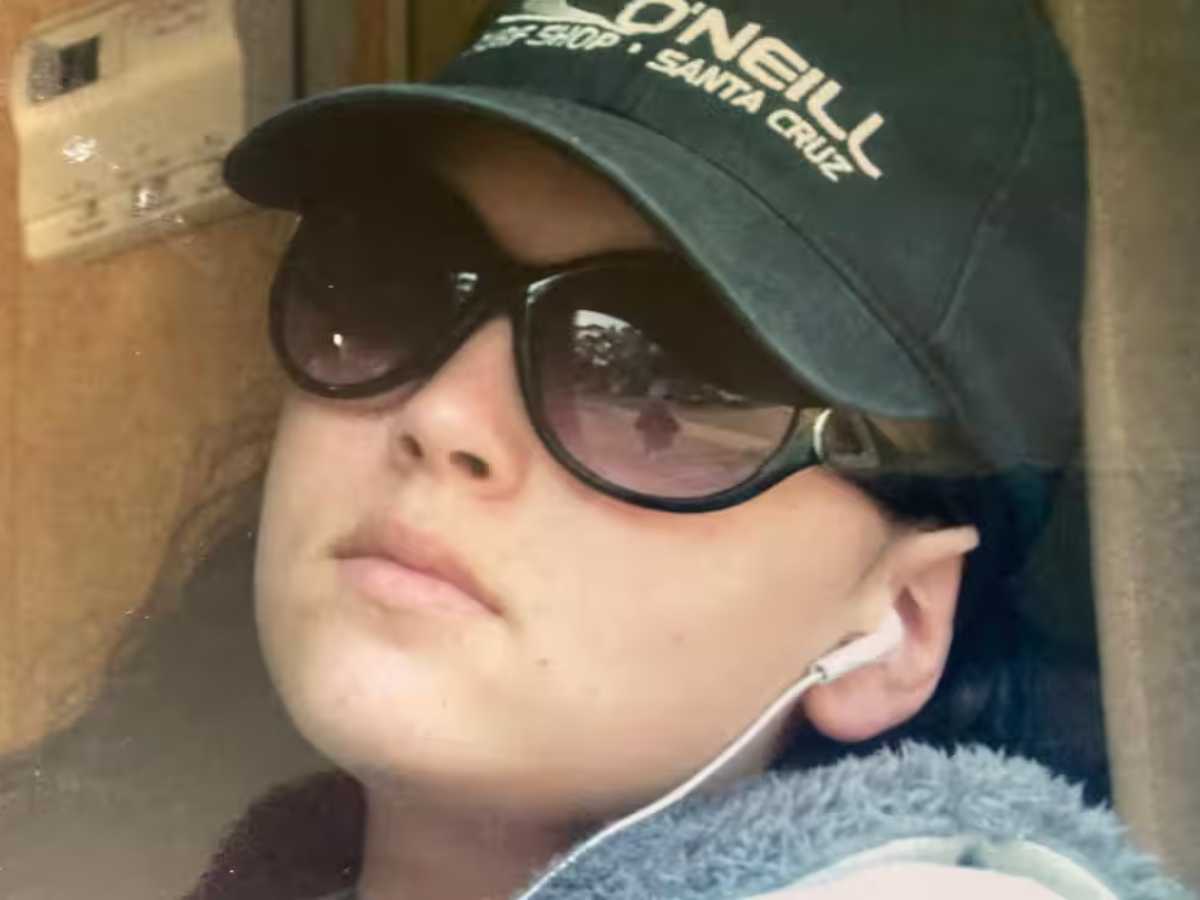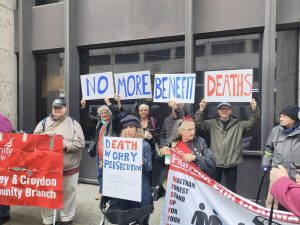On Friday 9 August, the inquest into the death of very severe myalgic encephalomyelitis (ME/CFS) patient Maeve Boothby O’Neill concluded that she died of natural causes because of her ME.
It was always unlikely that the Royal Devon and Exeter hospital that treated her was going to be found negligent. However, the coroner in the case has made the situation for everyone living with this devastating and potentially deadly illness in the UK a whole lot worse.
Maeve: the most horrific of cases
If you’re familiar with the case of Maeve, then I won’t need to furnish you with the details of how utterly heartbreaking and horrific it was. She died – effectively from starvation – on 3 October 2021, aged 27. Her death came after what can only be described as neglect, malpractice, and in some instances abuse, by the NHS.
Her mother Sarah said in her witness statement submitted to the inquest:
I believe the evidence shows Maeve is likely to have died from malnutrition and dehydration, because she had severe ME. I therefore believe her death was both premature and wholly preventable. As it is likely that her death could have been prevented, I am hoping the inquest will try to ascertain how three separate admissions to the Royal Devon and Exeter NHS Hospital Trust (RDE) failed to save her life (chronology of events)…
As an unqualified but concerned observer, it seemed to me the RDE did not respond to the severity of Maeve’s presentation, and failed in its duty of care and missed important opportunities to preserve the right to life; it did not refer to published guidance on ME, and it did not take available specialist expert advice on how to prevent malnutrition in severe ME.
Sadly, this was not the outcome. In fact, some of the coroner’s conclusion may have just compounded the dire state for people with ME in the UK.
A “true illness” is utterly subjective
ITV News reported that assistant coroner Deborah Archer – barely fit for purpose and clearly either not paying attention to what was being said or not understanding it – said:
she hoped important lessons will be learned from Maeve’s death and she said she did not find any of the clinicians who treated Maeve did not believe ME was a ‘true illness’
Contrary to what some people are saying online, the coroner did NOT conclude ME was a “physical illness” – just a “true” one. Archer completely missed the point. The entrenched problem with ME is NOT whether doctors think it is a “true illness”. It is whether they believe ME is psychiatric, not physical.
On day five of the inquest, Dr Kashyap Patel who had been involved in Maeve’s care at the hospital, was giving evidence. When asked by the coroner whether ME was real, he said he believed it had “physical symptoms” – but fell short of stating it was a physical illness. Sean O’Neill pressed him on whether he believed ME was a physical or psychiatric condition. Patel said:
As far as I understand the cause is not known. I should not speculate. I’m not going to speculate how much is this, how much is that [physical versus psychiatric] – the fact we are all sitting and talking about it tells us we don’t know…
We should not speculate and do what we can based on what we know at that particular time…
I’m not in a position to speculate on the evidence [about ME] and give my opinion on it… the fact that everyone is arguing on it means we don’t know… I did not even think, fight, argue, with the diagnosis Maeve had… because… the point was to make her better at the time. Knowing what caused it would not have influenced what I or people like me would have done.
That wordsoup effectively meant that Patel would not commit to whether or not he believed ME had a physical or psychiatric cause, or a combination of both.
The inquest was littered with other examples of this – from the GP practice including psychiatry on Maeve’s care pathway to one consultant saying she had “hypermania” via another who treated Maeve at the hospital saying:
I do not know what the cause of ME is. Therefore I’m not able to say if it is or is not a physical condition. That isn’t at all the same as saying I believe it isn’t… I find the literature generally to be unclear. For me the focus needs to be on what management does a patient need who is suffering with that diagnosis.
So, what Deborah Archer has done is merely compound the debate around whether ME is physical or psychiatric. She has given credence – and leverage – to the psychiatry lobby which would have that ME is a condition that primarily needs to be treated with exercise and talking therapies.
Doubling down
Archer then compounded this by saying:
In conclusion there is no known treatment of ME… The reality of this case is it is not possible for me to say if any treatment could’ve halted her decline – I hope lessons will be learned in the hope future deaths can be prevented.
In saying this, she threw Dr William Weir – one of, if not the, leading ME expert in the UK – further under the bus. This came after his peers in the medical profession at Royal Devon and Exeter hospital had already put him under there, after passively-aggressively disparaging him throughout the inquest.
However, crucially Deborah Archer has also set back the entire ME community. By saying there was nothing more the alleged medical professionals at Devon and Exeter could have done, she has given other hospitals a free pass to dismiss other very severe ME patients, their families, and people like William.
Carla Naoum, currently being mistreated, neglected, and abused in West Middlesex hospital being a case in point. Doctors there are also ignoring William Weir’s repeated advice and Carla is now in a perilous state.
Knowing her situation first hand, I know it has been near-identical in many respects to Maeve’s. The hospital’s approach to feeding, for example, has been very similar – with the same, incorrect assumptions around issues like aspiration and a refusal to change from an NG tube or to alter the position at which she lies.
Archer’s conclusion will effectively give legitimacy to West Middlesex’s approach of ignoring the family and ME experts, and treating Carla in the way they think is appropriate, despite it making her demonstrably worse. This now is, thanks to Archer, ‘because there’s nothing that West Middlesex can do that they’re not doing already’.
There was plenty more doctors could have done for Maeve – except they chose to ignore William, Sarah, and Maeve herself. Archer has now legitimised NHS doctor’s entrenched dogma surrounding ME. This will not be changing anytime soon – because of the lackluster NICE guidelines and the likelihood the government’s ME Delivery Plan will also be a whitewash.
An inquest was not bringing Maeve back – but it could have changed things for other people with ME
Ultimately, though, Maeve’s inquest was never going to be a watershed moment for the ME community. As former barrister and person with ME Valerie Eliot Smith wrote for David Tuller’s Virology:
An inquest is not a public inquiry, as the coroner in this case has emphasised. The remit of an inquest is much narrower and confined to the death in question…
An inquest is not a trial nor is it about apportioning blame. It is confined to establishing the facts and reaching a conclusion in a statutory form.
Anyone watching knows that Royal Devon and Exeter hospital catastrophically failed Maeve due to misogyny, dogma, negligence, ignorance, and entrenched God complexes.
An inquest was never going to address that.
Nor was it going to bring Maeve back.
However, what it and the coroner have done is muddied the already murky waters of just how the NHS supports people living with ME even further. This leaves people with severe and very severe ME in an even more perilous position than they were already.
Featured image supplied




